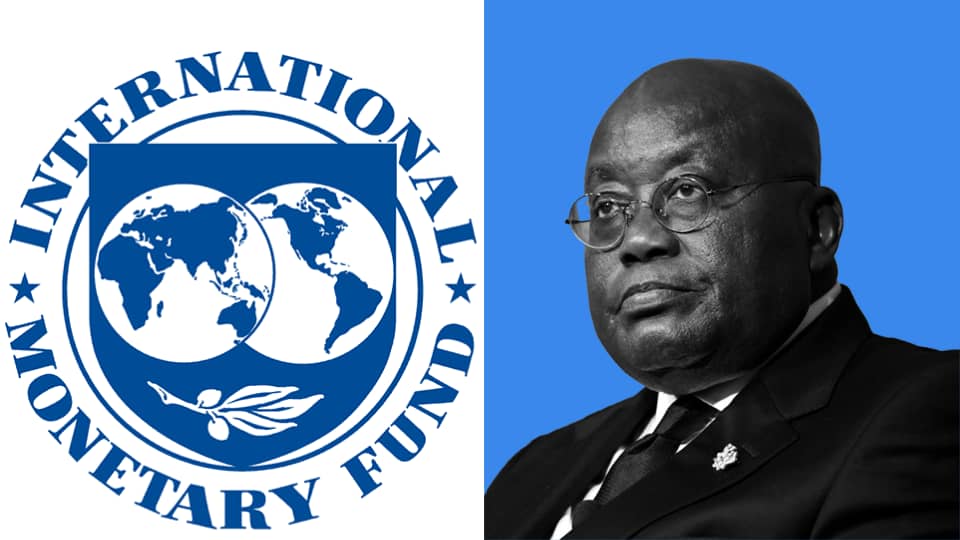Adnan Adams Mohammed
The International Monetary Fund (IMF) has finally approved Ghana’s request for a US$3 billion Balance of Payment support to stabilize the economy.
Managing Director of the Fund, Kristalina Georgieva says this programme is only the first step towards restoring Ghana’s economic stability.
In spite of the above assertion, some economists believe Ghana’s programme with the IMF is not just about receiving funds from the Bretton Woods institution to temporarily restore some stability in the economy, but also taking advantage of the programme’s details to raise revenue among others and limit reliance on external sources of funding and this will bring unexpected hard times. The Director of the Institute of Statistical, Social and Economic Research (ISSER) of the University of Ghana has indicated that, the first benefit of the programme is that it will bring about exchange rate stability and also help bring down inflation rate.
“As we are witnessing now, the exchange rate is appreciating, if it’s stable then you will not see an automatic adjustment. So it is something that will bring some hardships in some areas but benefits as well,” Professor Peter Quartey retorted in an interview last week. “Let’s take the case of employment, I have seen in the budget statement of 2023 that there is a freeze on employment. What it means is that we will not be able to employ the number of youth we are churning out of our institutions annually and that is a huge challenge. Already youth unemployment is huge and if for three years you cannot employ, you can imagine the effect.”
On revenue mobilisation, Prof Quartey stated that taxes need to be increased in some areas to help with local revenue mobilisation as the IMF has suggested. This he said would affect many Ghanaians and businesses going forward.
“We are basically doing well when it comes to income tax except that it is only a few people who are overburdened. Where the challenge is, is VAT. If you look at our VAT receipts compared to what is within the sub-region, we are way off the target. That is one area that may be increased and with the effect of increasing VAT, it might bring challenges.”
Already, the Minority in parliament is asking Ghanaians to be prepared for the shocks that will accompany the bailout secured from the International Monetary Fund (IMF).
According to the caucus, many of the conditionalities could have been avoided if the government heeded to their call to go to the Fund earlier in 2022.
“Suffice it to say that the Akufo-Addo/Bawumia government, as part of their proposal to the IMF to secure this deal, has agreed to increase utility tariffs every three months from last year. So far, since September 2022, electricity tariffs have gone up by a cumulative figure of 75.32% (27% in September 2022, 29.96% in the last quarter of 2022, and 18.36% a few days ago)”, the statement said.
“Let us brace ourselves for the full consequences of this IMF deal, which will, without doubt, bite hard on Ghanaians, especially the youth. This is not a counsel of despair, but a reality that will soon dawn on all of us”, the statement.
First tranche of the US$3 billion
At a joint press conference of the government of Ghana and officials of the IMF on Thursday, 18 May 2023, to announce the details on the disbursement of the US$3.0 billion, Finance Minister Ken Ofori-Atta indicated that the first tranche of the $3 billion extended credit facility would hit Ghana’s account on Friday, 19 May 2023. This was confirmed by the Governor of the Bank of Ghana (BoG), Dr Ernest Addison, who was also at the press conference, saying: “Just for your information, we have had swift advice, today to receive the money. Value date tomorrow $604 million”.
Mr Ofori-Atta further noted that, the executive board approval given to the bailout, has already started impacting Ghana’s economy positively.
“We are already seeing relative stability in the currency and inflation and revitalising our economy. Government with support from the IMF and collective effort with Ghanaians will work through our current challenges and emerge stronger.”
“This is the crucial first step on the necessary journey of strong reforms, inclusive growth, and relentless pursuit of a growth agenda geared towards restoring Ghana’s economy to a place of strength, prosperity, and resilience”, Mr. Ofori-Atta said
However, Mr Ofori-Atta, has emphasised that programme is to ensure social protection.
According to him, the programme will mitigate the impact of economic adjustment on the most vulnerable, whilst strengthening existing social intervention programmes such as Lively Empowerment Against Poverty (LEAP), National Health Insurance Scheme, Capitation Grant School Feeding Programme, amongst others.
Also present at the presser was the Fund’s mission chief for Ghana, Stephane Roudet. She noted that Ghana’s reform programme is full of substance.
“It is important to emphasise that this is a programme that is very rich in its structural components”, explaining, “it includes many reforms that cover a large range of sectors and these reforms will make the economy more resilient to shocks in the future and this is what the government and the IMF are looking for in this programme”.
“It is a programme that will make the economy more resilient and more likely to withstand shocks in the future”, Mr Roudet added.
Meanwhile, an Economist at the University of Ghana Business School, Prof. Godfred Bokpin has advised that, Ghana needs strict governance and productivity enhancing reforms to complement gains from the International Monetary Fund.
He contends, government has a lot of work to do, in ensuring a robust macro-economic stability in the short to medium term as the country awaits the first tranche of the $3 billion facility from the IMF.
Prof. Bokpin in an interview last week after the IMF board approval posited that now is the time for government to get to work.
“It’s time to roll-up our sleeves and get to work. Micro-economic stability is not an end in itself, it’s only a means to an end. What then is important is how do we complement gains from the IMF, short-term usually, but the necessary governance productivity enhancing reforms that Ghana needs to do.”
He wondered whether the country has taken any lesson after several visits to the Fund for a bailout.
“This is our 17th IMF supported programme. I am a little surprise today, that even from government circle they are expecting the IMF programme, when towards the end of 2021, we were making the call that government needed to go to the IMF to save this economy from this embarrassment”.
Meanwhile, the IMF has proposed the scrapping of tax exemptions, adjustment of levies on fuel, and an increase in income tax as some measures the Ghanaian government could implement following the approval of the programme.
This, the IMF said, would help to boost revenue mobilization under its $3 billion support programme.
This is contained in IMF’s May 2023 country report on Ghana’s request for the $3 billion support programme.
Also, the Bank of Ghana will continue tightening monetary policy until inflation is on a firmly declining path, the International Monetary Fund (IMF) has revealed.
According to the Fund, monetary and exchange rate policies under the programme will focus on reining in inflation and rebuilding foreign reserve buffers. The central bank is also expected to enhance exchange rate flexibility and limit foreign exchange interventions to rebuild external buffers.
“Monetary and exchange rate policies under the program will focus on reining in inflation and rebuilding foreign reserve buffers. The Bank of Ghana will continue tightening monetary policy until inflation is on a firmly declining path and will eliminate monetary financing of the budget”, a press statement issued by the Fund after the Executive Board approved Ghana’s $3 billion bailout package indicated.
The statement further indicated that an ambitious structural reform agenda is being put in place to reinvigorate private sector-led growth by improving the business environment, governance, and productivity.
“Preserving financial sector stability is critical for the success of the program. Given the adverse impact of the domestic debt restructuring on balance sheets of financial institutions, the authorities will devise and implement a comprehensive strategy to rapidly rebuild financial institutions’ buffers and exit from temporary regulatory forbearance measures”, the Fund added.
Outlook and risks
The Fund said while growth is expected to decline this year because of the crisis and the planned fiscal consolidation, a resolution of the debt crisis and reforms should foster a recovery and reduce inflation over the medium term.
Major downside risks include slippages in programme execution, delays in restructuring debt, and a deterioration in the external environment.




























